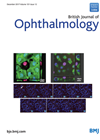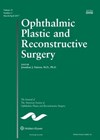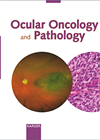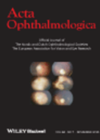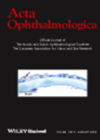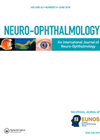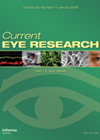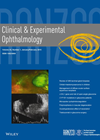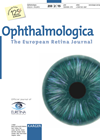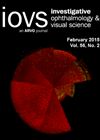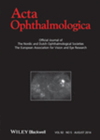
Journal Reviews
PRN Ranibizumab verses continuous aflibercept in UK clinical practice
This was a multicentre (21 UK hospitals), national EMR study on treatment naïve nAMD eyes, undergoing predominantly as needed (PRN) Ranibizumab or continuous (fixed or treat and extend - (F/TE)) Aflibercept (Af). The primary outcome was change in vision at...
Management of diabetic macular oedema (DMO)
The authors present guidelines on current diagnostic and therapeutic procedures in the management of DMO. Fluorescein angiography (FA) and optical coherence tomography (OCT) are recommended before starting treatment to help diagnose and stage DMO, and can be repeated if there...
Periocular sweat gland carcinomas
This is an interesting review of a rare group of tumours which together comprise the adnexal sweat gland carcinomas. Although there are only 22 patients, this is the largest cohort ever published. The authors summarise the clinical presentation, stage, management...
High dose (2.5mg) bevacizumab for postradiation cystoid macular oedema
The authors present a retrospective, interventional case series investigating the efficacy of high dose (2.5mg/0.1ml) intravitreal bevacizumab in the treatment of persistent postradiation (Iodine-125 plaque brachytherapy for uveal melanoma) cystoid macular oedema (CME). Persistent CME was defined as increased or...
Predictors of IOP reduction after SLT
The aim of this study was to identify predictors of intraocular pressure reduction following selective laser trabeculoplasty (SLT) in patients with primary open-angle glaucoma, who are already taking maximally tolerated IOP-lowering medication and need further IOP reduction. In this prospective...
Retinoblastoma chemotherapeutic drugs and their toxic effects on RPE cells
There is reported clinical evidence of retinal pigment epithelium (RPE) alterations after intra-arterial (IAC) and intravitreal chemotherapy (IViC) of retinoblastoma. The purpose of this study was to investigate the cellular toxic effects of melphalan, topotecan and carboplatin on the RPE...
Rituximab as an immunosuppression treatment for thyroid eye disease
Thyroid eye disease is traditionally treated with high dose glucocorticosteroids and surgical orbital decompression, where responses are often inadequate. This medical treatment is centred around symptom control and reduction of thyroid hormone synthesis, not immunosuppression. Rituximab is an anti-CD20 monoclonal...
Systemic rituximab immunotherapy in the management of primary ocular adnexal lymphoma single institutional experience
Ocular adnexal lymphomas constitute 2% of all non-Hodgkin’s disease and 5-15% of all extranodal lymphomas and are usually localised, low-grade and of B-cell origin. This opens them up to potential treatment with a systemic monoclonal antibody-based drug (rituximab) directed at...
Management of diffuse OSSN with topical chemotherapy
Ocular surface squamous neoplasia (OSSN) can be localised to the conjunctiva or, less commonly, diffusely spread over the conjunctiva and cornea. Localised OSSN can be treated by surgical removal with adjuvant cryotherapy and chemotherapy with low rates of recurrence. Diffuse...
RaScaL Study
The RaScaL study was a six month, single-centre, controlled, prospective phase I/II study in which subjects with diabetic macular oedema (DME) and associated peripheral nonperfusion on ultrawide-field fluorescein angiography (UWFA) were randomised to: (1) study arm: ranibizumab (0.5 mg) injection...
Brn3b neuroprotective effect in rat glaucoma model
An adeno-associated virus-directed overexpression of the Brn3b protein in hypothesised to confer neuroprotective effects in this paper. This is ultimately tested in a well-accepted rat glaucoma model (Morrison’s model: saline injection into episcleral veins of rat eyes with a force...
Long-term outcomes for hereditary retinoblastoma
Earlier diagnosis and more rigorous treatment regimens have contributed to better outcomes for patients with retinoblastoma. This study looked at 24 patients with hereditary bilateral retinoblastoma treated with systemic chemotherapy during a ten year period (2001-2011). The medical notes were...

